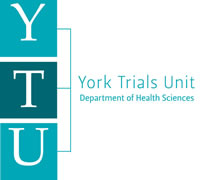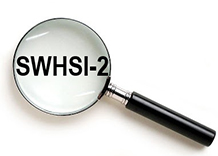SWHSI-2 A pragmatic multicentre randomised controlled trial to assess the clinical and cost effectiveness of negative pressure wound therapy versus usual care for surgical wounds healing by secondary intention
After an operation, most wounds are closed using stiches or staples. Some wounds cannot be closed in this way and are left open. Sometimes wounds that have been closed may open up again. These “open” wounds are usually left to heal, over time, from the bottom up rather than attempting to close them again by some other means.
The most common treatment for these wounds is plain dressings. Negative Pressure Wound Therapy (NPWT) is a relatively new treatment for open surgical wounds. It uses a small machine to apply gentle suction to a wound through a special dressing. This removes wound fluid, may keep the wound clean and may help with healing. Use of NPWT has become more common and is used in around one third of people with open surgical wounds. It is not known which of these is the most effective treatment for surgical wounds healing by secondary intention.
The SWHSI-2 Trial compared NPWT with normal dressings to see if it made any difference to how quickly these open wounds heal.
The study recruited from 28 NHS hospital or community sites, and randomised 686 participants (total 98.5% of target) and patients received either NPWT or usual care. The primary outcome was time to wound healing in days since randomisation. The associated costs of these treatments to the NHS was also evaluated.
The study was being run by the Hull University Teaching Hospitals NHS Trust and the University of York, with funding from the National Institute for Health Research Health Technology Assessment Programme (Ref:17/42/94). Professor Ian Chetter was the Chief Investigator.
The results of the study have now been published and can be accessed via: https://doi.org/10.1016/S0140-
Alternatively we have summarised the results in an animation
Privacy Notice: How we use your research data
Funding
| Funder (s): | NIHR HTA |
| Start Date: | November 2018 |
| End Date: | October 2022 |



